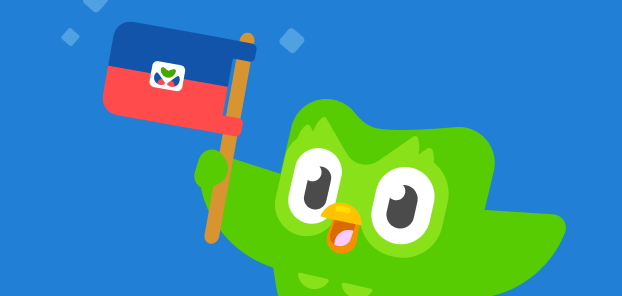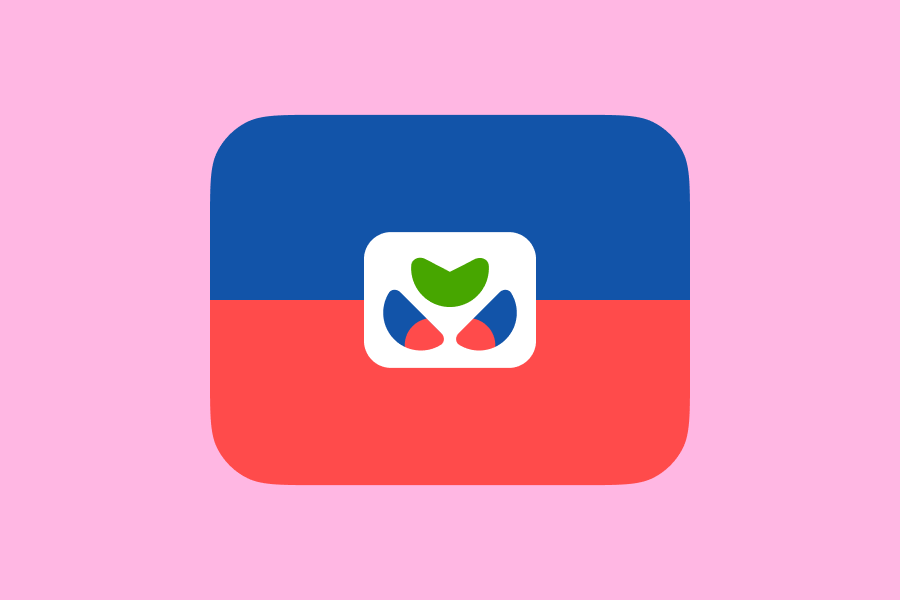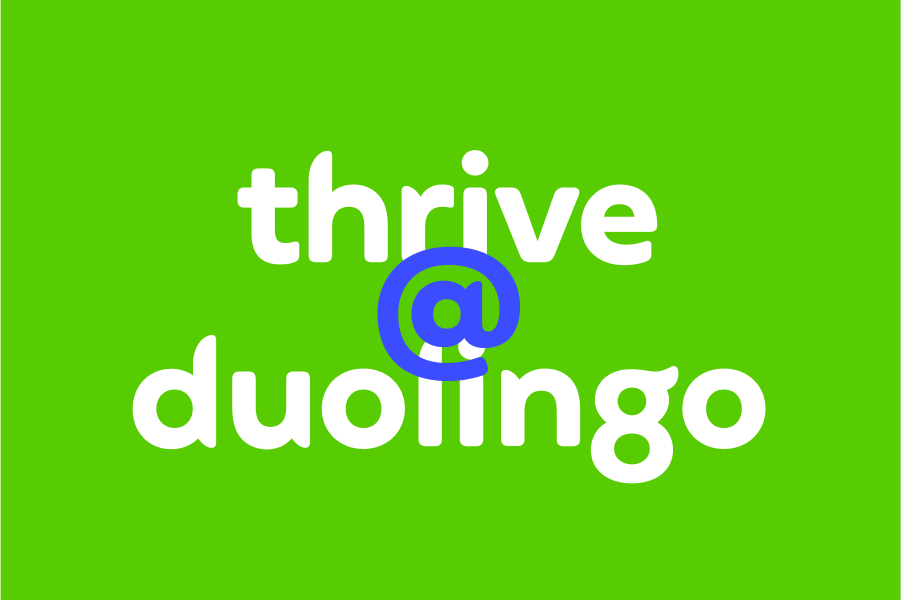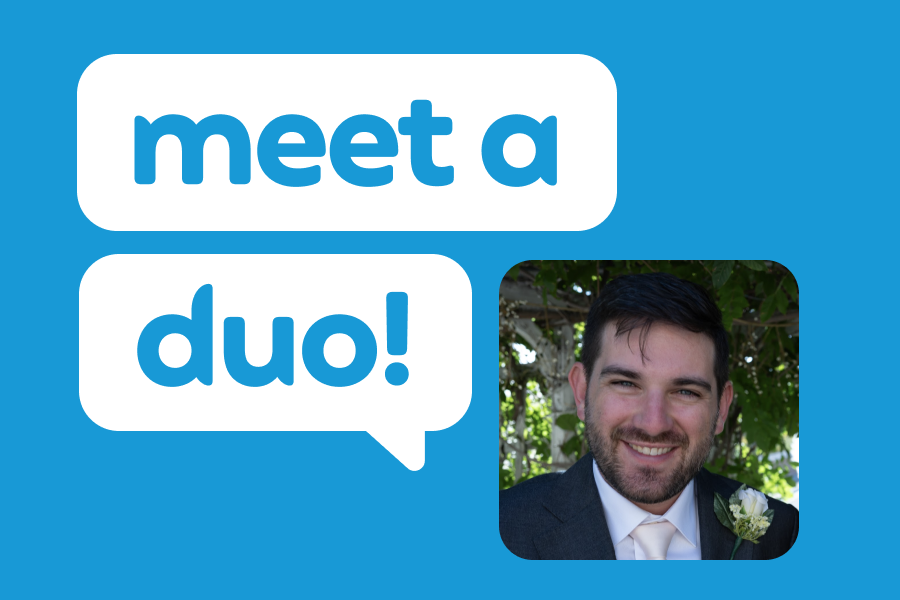This post was co-authored by Nyya Flores Toussaint, Cécile Accilien, and Nick André
This year, International Mother Language Day has a theme that’s near and dear to our hearts at Duolingo: using technology for multilingual learning. As we note the importance of languages spoken in people’s homes, it’s a perfect time to celebrate the launch of Duolingo’s latest course, Haitian Creole (our 41st language!). A “mother language” is often defined as the first language a person learns to speak—but as we discuss Haitian Creole, there’s another layer. The language has mostly been preserved through the spoken word and informal teaching until the late 1970s, intentionally passed down by mothers, aunties, grandmothers, and great-grandmothers through culture, spirituality, and everyday life. Without them, this language might not exist in the present day.
Haitian Creole (kreyòl to its speakers) is such an important and vital language, and technology represents a new horizon for passing this language to new learners, alongside its legacy of revolution and forward thinking.

A brief history of Haitian Creole
As with many Afro-Latino and Afro-Indigenous languages, Haitian Creole has a history of perseverance under oppression. The Creole languages of the Americas saw most of their development during the 200 years of the Transatlantic Slave Trade when Africans, primary from West and Central Africa, were forcibly brought to the Greater Caribbean, then to North and South America. Enslaved Africans and their descendants spoke dozens of different West and Central African languages, and contact with speakers of Amerindian and European languages led to the languages that we identify today as “Creole languages.” Of course, there were already Creole languages spoken in West Africa before European expansion in the Americas, and experts have also identified Creole languages in many other parts of the world, such as Australia. In Haiti, which shares an island with the Dominican Republic, a Creole language emerged during the late 17th century when French speakers colonized the Western part of the island known then as Saint-Domingue. Today, Haitian Creole is the most widely spoken Creole language, with around 12 million speakers in Haiti and in the Haitian diaspora.
The history and culture of Haitian Creole must be taught through an intersectional lens that encompasses race, class, and social justice. It is the language that united enslaved people as they organized a successful rebellion and the establishment of the first sovereign Black nation. As the second independent nation in the Americas, Haiti’s slave rebellion and revolution staked a claim for universal human rights and diginity as a civil right. Throughout the course, you’ll notice sentences and lessons that address historical and current social justice issues. Course creators felt it was important to prepare learners for the political, social, and spiritual conversations they are likely to have with people from Haiti and of Haitian heritage around the world.
Haitian Creole in the present
Duolingo’s Haitian Creole course was initially created thanks to the contributions of Professor Nick “Tiko” André, professor of Haitian Creole at Florida International University and founding member of the Akademi Kreyòl Ayisyen (Haitian Creole Academy) in Haiti, and his former student Nyya Flores Toussaint, who helped established a relationship with Duolingo to build a first-of-its-kind free, digital course for the spoken language of Haitian Creole.
Together with other professors and students, the team modeled the collaborative creation of the course in the spirit of the Haitian co-op concept known as a konbit. Just as the people of Haiti have gathered themselves and their resources to fix a neighbor’s roof, make a community pot of legim (stewed vegetables), or hold a vèy (wake), the course’s contributors came together to form a course to invite English speakers to learn their mother tongue. We thank professors Cécile Accilien, Eddy André, Sony Ton-Aimé, and Jowel Laquerre, and students Anaïca Saint Fleur, Rebekah Antoine, Cindy Arias, Gabriela Ferreira, and Nicole Durham for their efforts in helping create the course.
Spot the difference
Although many Haitian Creole words share some similarities with French words, there are major differences between the two languages. One is in the language’s grammar, which most linguists agree is based on that of West African languages like Fon and Igbo. For instance, the order of the word for “the” in Haitian Creole more closely resembles that of Fon than that of French:
| English | French | Haitian Creole | Fon |
|---|---|---|---|
| the house | la maison | kay la | afe a |
Another example of difference is in vocabulary. Although Haitian Creole and French share many words in common, their meanings are very different at times. For example, the French word fréquent means “frequent/often,” but in Haitian Creole, the cognate frekan generally refers to a rude person! And if you ask for a bonbon using Haitian Creole, you’ll get a cookie, while the French word refers to candy.
Kreyòl pale, kreyòl konprann
Linguistic discrimination rooted in colonialism led to a lack of institutional support for the teaching of Haitian Creole. This has made it challenging for many generations of Haitians to learn how to read and write in Haitian Creole. However, there has been literature written in Creole since the second half of the 18th century. Despite the lack of resources or formal education, people of Haiti have long used their language to connect with each other across communities and regions—an idea captured in the proverb kreyòl pale, kreyòl konprann (“Creole spoken, Creole understood”). For generations, Haitian people have bravely spoken Creole and intentionally sought to understand one another and preserve their language. Haitian Creole reminds us that languages are not formed nor survived by formal means, but rather by the people who speak them.
This course builds on the legacy of Haitian Creole’s rich linguistic tradition, passed down through generations over hundreds of years. Vin jwenn ak nou (“come join us”) as we celebrate this language’s legacy and its role in the future, as we use technology to help teach this important mother language for more than 12 million speakers! Start learning today!
Learn more about Haiti and Haitian Creole:
Online publications and institutions:
- Official Publications by the Akademi Kreyòl Ayisyen
- Haitian Summer Institute
- Duke Haiti Lab Kreyòl Blog
- Haitian Creole Language Institute
- Haitian Linguistic and Cultural Practices
- Platfòm MIT-Ayiti
Books:
- Haitian Creole Phrasebook: Essential Expressions for Communicating in Haiti
- Kreyòl Modèn: Modern Creole Language
- English-Haitian and Haitian-English Dictionary Pack
- Haitian Creole-English Bilingual Dictionary
- The Haitian Creole Language: History, Structure, Use and Education
- The Haiti Reader
- Education Across Borders: Immigration, Race, and Identity in the Classroom
- The Haitian Americans
Articles:
- What are Creole languages, anyway?
- Creole FAQs
- A look at Haitian Creole documentation, lexicography and morphology
- From LGBT to M Community
Academic Research:
- The Creole language and Haitian identity: historical and social facts
- Haiti, Quebec, and the French Canadian Mission to Quisqueya
- The ‘Real’ Haitian Creole: Ideology, Metalinguistics, and Orthographic Choice
- Advocacy for the normalization of the Creole language in the context of language planning: the positive role of a language Academy



